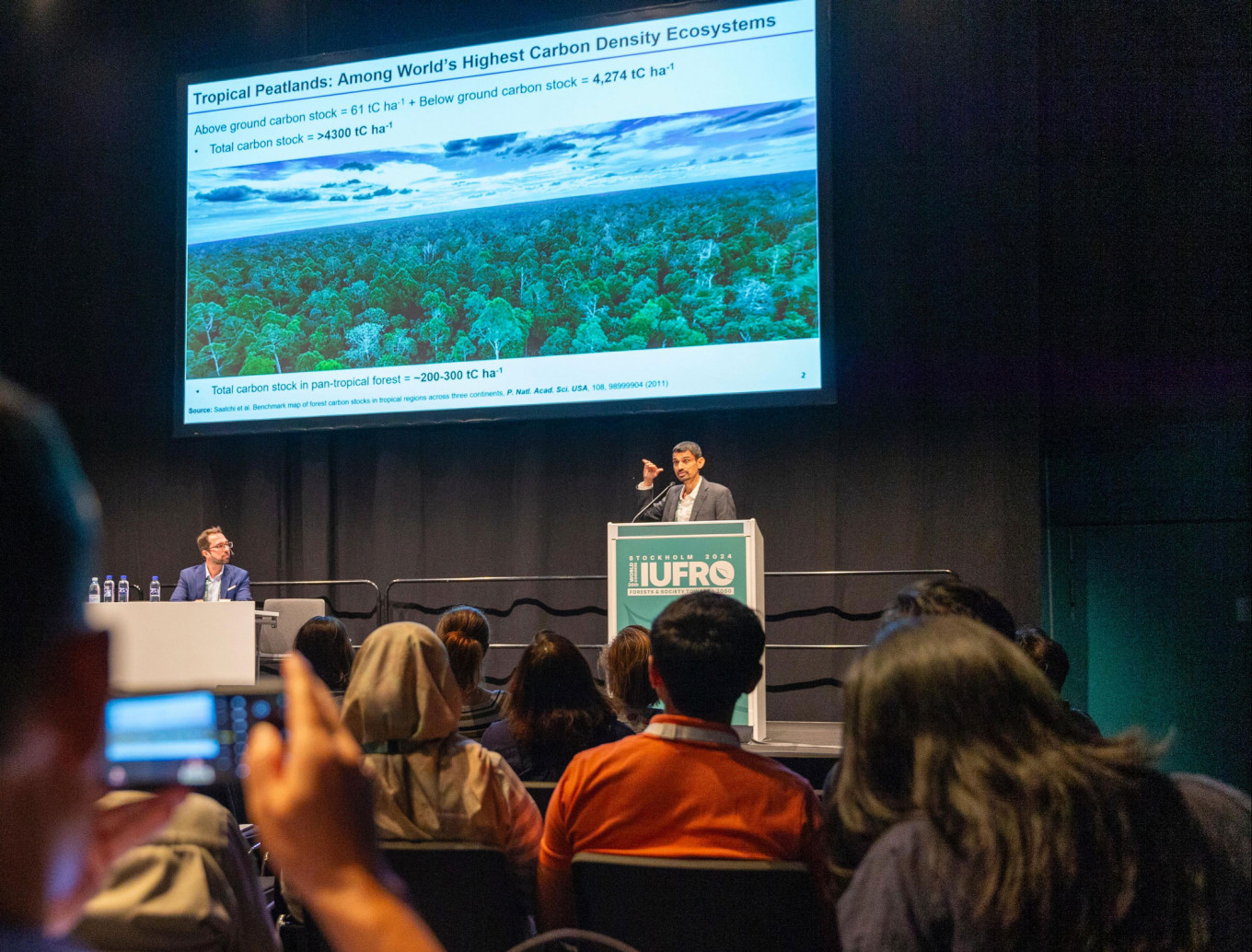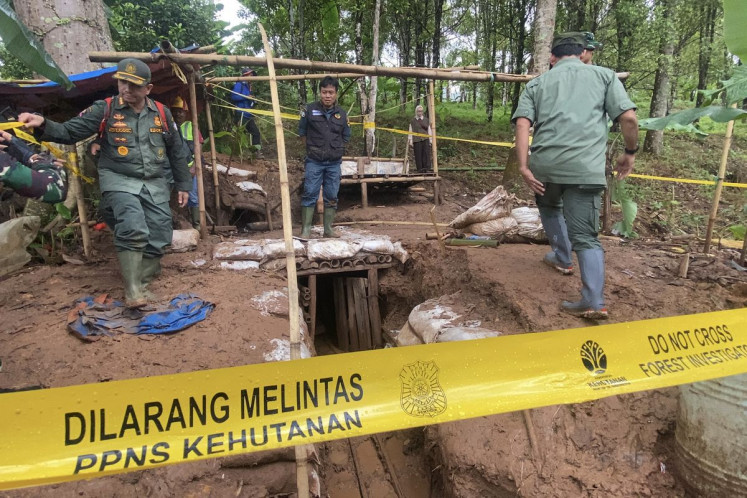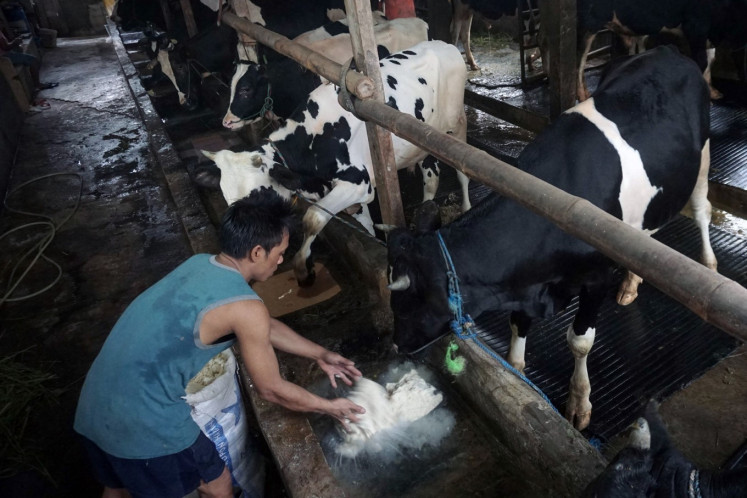Popular Reads
Top Results
Can't find what you're looking for?
View all search resultsPopular Reads
Top Results
Can't find what you're looking for?
View all search resultsAPRIL Shares Advances in Forestry Science at IUFRO World Congress 2024
APRIL Group, a leading pulp, fiber, and paper producer, continues to demonstrate its effort to sustainability and climate action through significant investments in research.
Change text size
Gift Premium Articles
to Anyone
APRIL Group, a leading pulp, fiber, and paper producer, continues to demonstrate its effort to sustainability and climate action through significant investments in research. At the recent International Union of Forest Research Organization (IUFRO) World Congress held in Stockholm from June 23 to 29, APRIL highlighted advancements in forestry science that align with their decade-long commitment, APRIL2030.
During this premier global forestry event, APRIL’s researchers—Dr. Gustavo Martins, Kirti Bajpai M.Sc., and Dr. Chandra Deshmukh—presented findings aimed at achieving key targets, including achieving net-zero emissions from land use, advancing tropical peatland science, and enhancing fiber plantation productivity by 50 percent by 2030.
Dr. Gustavo Martins, Program Leader for Tree Improvement and an expert in plant genetics, works with his team to develop varieties of plantation trees that can better cope with environmental stress from the climate or pests.
Martins presented a study that involved mapping the genetic characteristics of nearly 84,000 Acacia crassicarpa seedlings and then investigating how these DNA markers are correlated with the growth of the adult trees, including traits such as the density of the wood and and other tree growth characteristics like straightness. The study demonstrated the effectiveness of this type of genetic mapping in selecting the most productive trees for planting in the field.
Geographic Information Systems analyst Kirti Bajpai regularly carries out research to understand how features of the landscape impact plantation growth. The research she presented at IUFRO looked in detail at the physical and chemical properties of soil and site, such as clay content, organic carbon, nitrogen, phosphorus, and slope, in one of APRIL’s eucalyptus plantations.
Investigating how trees with a different genetic makeup fared in that soil, the team has shown that it is possible to predict how well different genetic varieties will grow based on soil characteristics. This is vitally important information for improving productivity, as a poor match between tree genetics and planting site can take years to become apparent through slow growth.
Dr. Chandra Deshmukh presented a study conducted between 2016 to 2022 that measured greenhouse gas exchange on tropical peatlands between the atmosphere and three particular sites: intact forest ecosystem, degraded peatland swamp forest and APRIL’s Acacia plantations on peatland.
The results, published in the scientific journal Nature, are vital for understanding and mitigating the climate impact of APRIL’s operations and have relevance far beyond the company for support the calculating Indonesia’s overall carbon emissions from land use changes.
The three researchers are part of APRIL’s research and development team, a unique force of nearly 280 individuals based at the company’s operations in Pangkalan Kerinci, Riau. With nine PhDs and 21 master’s degrees, the team conducts original research in fields such as tissue culture, biological control, drone-mounted sensing and plant genetics.
This is further supported by a dedicated 28 strong Peatland Science team, which includes three PhDs and seven at Masters level. This team has successfully conducted research on greenhouse gases, tropical peatlands and other related tropical forestry issues.
APRIL's Research teams are esteemed in the industry, conducting research that holds promising implications for enhancing plantation productivity. This work aims to achieve higher levels of production per hectare of land while also striving to minimize impact on the natural environment
Over the last decade, the team has published around 100 papers in peer-reviewed scientific journals, and regularly attends scientific and industry events to engage with global peers and share knowledge and insight.
This article was published in collaboration with APRIL Group.











